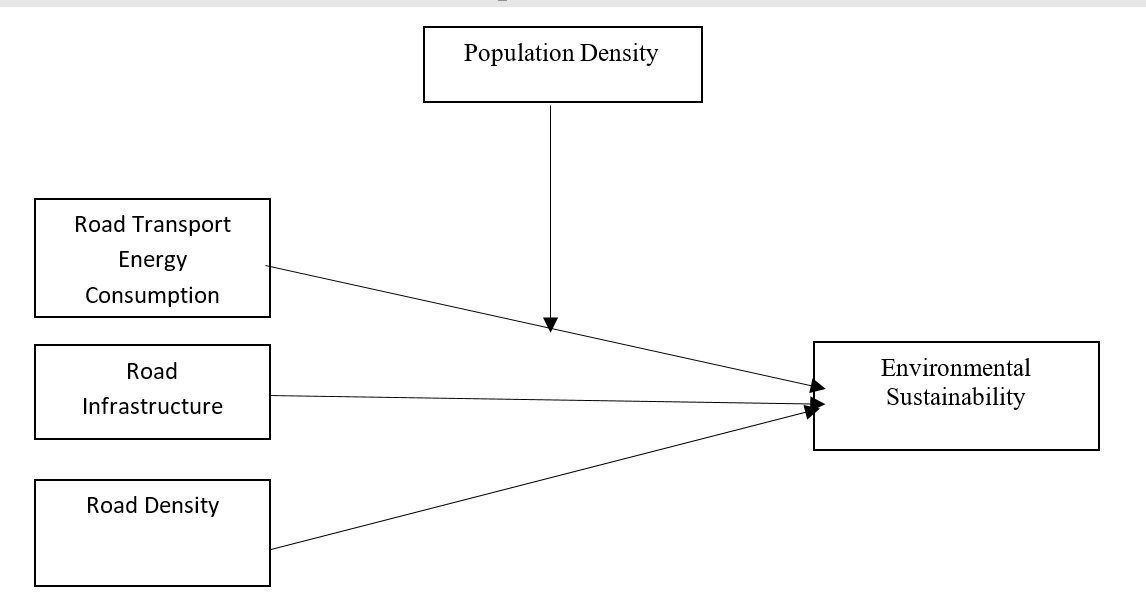IMPACT OF ROAD TRANSPORTATION MANAGEMENT ON ENVIRONMENTAL SUSTAINABILITY IN ASIA COUNTRIES: ROLE POPULATION DENSITY
DOI:
https://doi.org/10.71146/kjmr147Keywords:
Environmental Sustainability, Road Transport Energy Consumption, Road Infrastructure, Road Density, Population DensityAbstract
By applying the EKC theory to population density, we can better understand the relationship between road transportation and environmental sustainability and discover ways to mitigate its adverse effects. This study utilizes a "balanced panel dataset" of Pakistan, Bangladesh, Nepal, Sri Lanka, and India from 1990 to 2014 to achieve its objectives. The majority of variables included in the study were not accessible until 2014. Due to a lack of available data, other South Asian nations were excluded. The dataset was provided by the World Development Indicators (WDI), Global Footprint Network (GFN), and the National Bureau of Statistics (NBS). This study employs the unit root test and Panel OLS Regression statistical techniques. At the 0.05 level, all independent variables are statistically significant. The findings suggest that road infrastructure, road density, and population density enhance environmental sustainability, while road transport energy consumption diminishes it. Population density and road transport energy consumption are also detrimental to environmental sustainability. However, the study also highlights the crucial role of the public, developers, planners, and legislators in achieving sustainable transportation and urban development goals. Their compliance, participation, and cooperation are essential in developing more inclusive, egalitarian, and effective sustainable transportation and urban development policies. The study's recommendations include community member inclusion in the planning process and promoting stakeholder partnerships through public input and feedback.
Downloads

Downloads
Published
Issue
Section
License
Copyright (c) 2024 Ikramuddin Junejo, Aisha Iqbal Shaikh, Muhammad Sufyan Ramish, Dr. Zahra Nazim (Author)

This work is licensed under a Creative Commons Attribution 4.0 International License.


